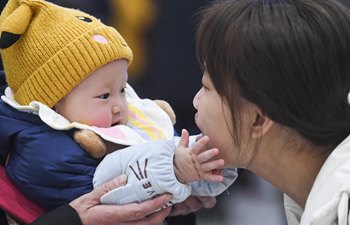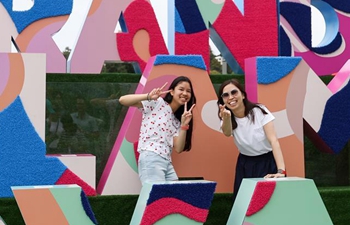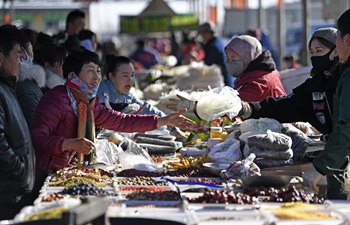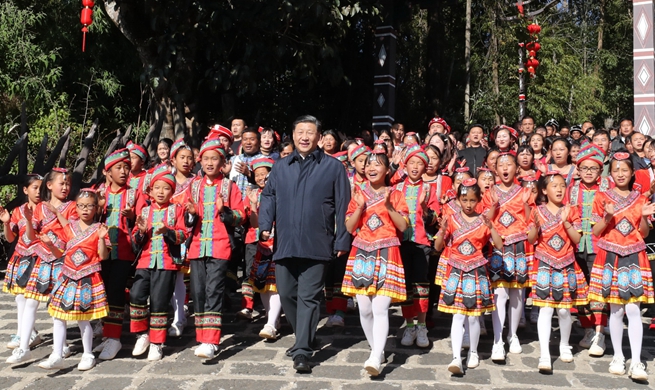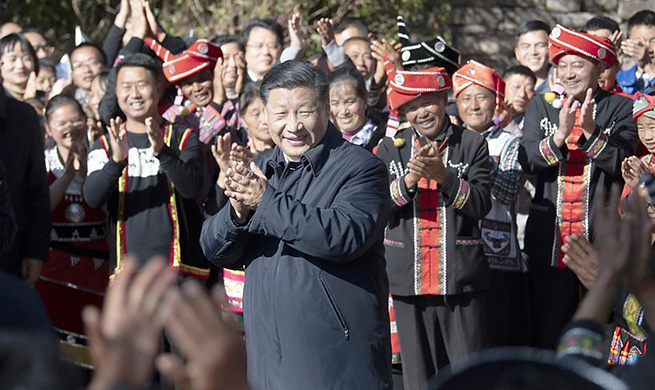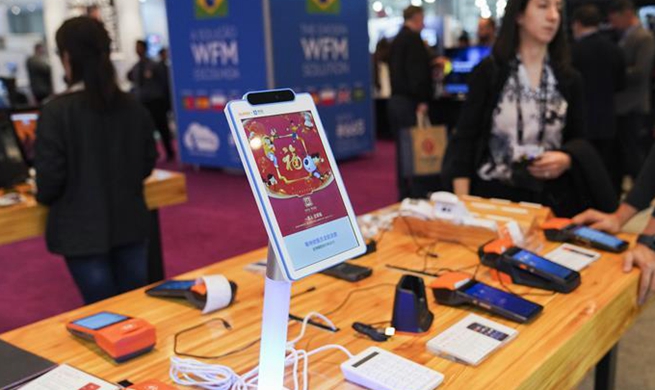SHENYANG Jan. 20 (Xinhua) -- As Chinese New Year drew near, people of the Xibo ethnic group gathered Friday in Silongwan Village in Shenyang, capital of northeast China's Liaoning Province for a traditional game known as "galaha snatching."
"Galaha" refers to pieces of bones taken from the joints of goats or pigs. Before the game, 200 galahas are spread on a blanket. Then, a metal ball is thrown high up in the air and participants snatch as many bone pieces as possible before catching the metal ball again. The one who grabs the most bone pieces before catching the ball is the winner.
"The game isn't about winning or losing. It's more about getting everybody together and enjoying the festivity of the Chinese New Year," said 74-year-old veteran galaha snatcher Zhang Qingtian.
Zhang said the game had been his favorite since he was a child and he had almost dominated the game over the past decades.
China has 55 ethnic minority groups, and almost all of them have their own traditional cultural events.
According to experts in ethnic culture, the galaha snatching game has its roots in the leisure activities of ancient Xibo hunters. When an animal was captured and killed, the hunters would preserve the galahas and save them for indoor games in winter.
In 2011, the centuries-old game entered the provincial list of intangible cultural heritage.
Shenbei New District, where Silongwan Village is located, is one of the areas with a large Xibo population in China.
Currently, the district has established facilities for intangible cultural heritage preservation and has been promoting the traditional activities at all fronts, including schools and rural communities.
A museum devoted to the culture of the Xibo group opened in 2018 in the district, highlighting Xibo history, society and culture.
"We have carried out a series of special Xibo ethnic activities such as galaha snatching, paper-cutting and archery, to preserve the culture," said Guan Zhongzhan, an official of the district.




